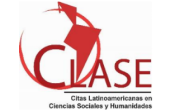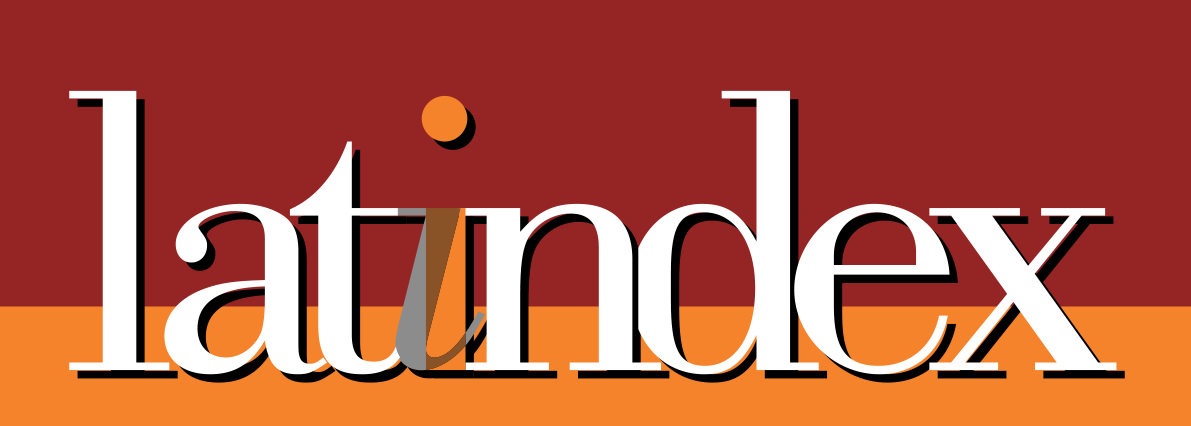Epistemología histórica cum relativismo epistémico
DOI:
https://doi.org/10.19053/01235095.v7.n28.2021.12335Palabras clave:
estilos de razonamiento científico, desacuerdo, quiebra comunicativa, relativismo epistémico, pluralismoResumen
En este artículo abordo las implicaciones de la epistemología histórica de los estilos de razonamiento científico para realizar un análisis de las quiebras comunicativas. Para ello me serviré del famoso debate entre Popper y Kuhn con motivo de un simposio celebrado en Londres en 1965. Popper observó en el Kuhn temprano de los paradigmas y la inconmensurabilidad, una instancia de lo que él llamaba el ‘mito del marco’ (‘the myth of the framework’), es decir, la creencia en la imposibilidad de que un investigador salga por un momento del marco de conceptos y principios dentro del cual está trabajando, y compararlo con otro marco en competencia. Argumento que el motivo del ‘mito del marco’ puede ayudar a clarificar algunos supuestos básicos de la epistemología histórica de los estilos de razonamiento científico, así como su relevancia para una teoría de la comunicación. A este respecto, mi tesis básica sostendrá que la explicación epistemológica de las quiebras comunicativas asume una concepción relativista de estilos de razonamiento con marco, mientras que las taxonomías de estilos presuponen una concepción transcendental de los estilos de razonamiento sin marco.
Descargas
Referencias
Blumenberg, H. (2003). Trabajo sobre el mito. Barcelona: Paidós.
Blumenberg, H. (2011). Descripción del ser humano. Buenos Aires: Fondo de Cultura Económica.
Chandler, J.; Davidson, A. and Harootunian, H. (Eds.). (1994). Questions of Evidence: Proof, Practice, and Persuasion across the Disciplines. Chicago: University of Chicago Press.
Chang, H. (2012). Is Water H2O? Evidence, Realism and Pluralism. Dordrecht: Springer. DOI: https://doi.org/10.1007/978-94-007-3932-1
Chang, H. (2020). Relativism, Perspectivism and Pluralism. M. Kusch (Ed.), The Routledge Handbook of Philosophy of Relativism (pp. 398-406). London / New York: Routledge. DOI: https://doi.org/10.4324/9781351052306-43
Crombie, A. (1994). Styles of Scientific Thinking in the European Tradition: The History of Argument and Explanation. London: Duckworth.
Daston, L. (Ed.). (2000). Biographies of Scientific Objects. Chicago: University of Chicago Press.
Daston, L. and Galison, P. (2007). Objectivity. New York: Zone Books.
Daston, L. and Galison, P. (2008). Objetivity and its Critics. Victorian Studies, 50 (4), pp. 666-677. https://www.jstor.org/stable/40060410 DOI: https://doi.org/10.2979/VIC.2008.50.4.666
Davidson, A. (1996). Styles of Reasoning, Conceptual History, and the Emergence of Psychiatry. P. Galison and D. J. Stump (Eds.), The Disunity of Science (pp. 75-100). Stanford: Stanford University Press.
Davidson, A. (2001). The Emergence of Sexuality: Historical Epistemology and the Formation of Concepts. Chicago: University of Chicago Press.
Davidson, A. (2004). La aparición de la sexualidad (J. López Guix, Trad.). Barcelona: Alpha Decay.
Fleck, L. (1986). La génesis y el desarrollo de un hecho científico. Introducción a la teoría del estilo de pensamiento y del colectivo del pensamiento. Madrid: Alianza.
Fuller, S. (2004). Kuhn vs Popper. The Struggle for the Soul of Science. New York: Columbia University Press.
Gattei, S. (2008). Thomas Kuhn’s ‘Linguistic Turn’ and the Legacy of Logical Empiricism: Incommensurability, Rationality and the Search for Truth. Aldershot: Ashgate.
Giere, R. (2016). Feyerabend’s Perspectivism. Studies in History and Philosophy of Science, 57 (1), pp. 137-141. https://doi.org/10.1016/j.shpsa.2015.11.008 DOI: https://doi.org/10.1016/j.shpsa.2015.11.008
Hacking, I. (1982). Language, Truth and Reason. M. Hollis and S. Lukes (Eds.), Rationality and Relativism (pp. 49-66). Cambridge Mass.: MIT Press.
Hacking, I. (2002). Historical Ontology. Cambridge Mass.: Harvard University Press.
Hacking, I. (2012). Language, Truth and Reason’ 30 Years Later. Studies in History and Philosophy of Science, 43 (4), pp. 599-609. https://doi.org/10.1016/j.shpsa.2012.07.002 DOI: https://doi.org/10.1016/j.shpsa.2012.07.002
Hacking, I. (2015). Probable Reasoning and Its Novelties. T. Arabatzis; J. Renn and A. Simoes (Eds.), Relocating the History of Science. Essays in Honor of Kostas Gavroglu (pp. 177-192). Cham: Springer. DOI: https://doi.org/10.1007/978-3-319-14553-2_12
Hales, S. (2014). Motivations for Relativism as a Solution to Disagreements. Philosophy, 89 (1), pp. 63-82. https://doi.org/10.1017/S003181911300051X DOI: https://doi.org/10.1017/S003181911300051X
Kinzel, K. and Kusch, M. (2018). De-idealizing Disagreement, Rethinking Relativism. International Journal of Philosophical Studies, 26 (1), pp. 40-71. https://doi.org/10.1080/09672559.2017.1411011 DOI: https://doi.org/10.1080/09672559.2017.1411011
Kuhn, T. (1970a). Logic of Discovery or Psychology of Research? I. Lakatos and A. Musgrave (Eds.), Criticism and the Growth of Knowledge. Series: Proceedings of the International Colloquium in the Philosophy of Science. (pp. 2-24). London: Cambridge University Press. DOI: https://doi.org/10.1017/CBO9781139171434.003
Kuhn, T. (1970b). Reflections on my Critics. I. Lakatos and A. Musgrave (Eds.), Criticism and the Growth of Knowledge. Series: Proceedings of the International Colloquium in the Philosophy of Science (pp. 231-278). London: Cambridge University Press. DOI: https://doi.org/10.1017/CBO9781139171434.011
Kusch, M. (2009). Objectivity and Historiography. Isis, 100 (1), pp. 127-131. https://doi.org/10.1086/597564 DOI: https://doi.org/10.1086/597564
Kusch, M. (2010). Hacking’s Historical Epistemology: A Critique of Styles of Reasoning. Studies in History and Philosophy of Science, 41 (2), pp. 158-173. https://doi.org/10.1016/j.shpsa.2010.03.007 DOI: https://doi.org/10.1016/j.shpsa.2010.03.007
Kusch, M. (2011). Reflexivity, Relativism, Microhistory: Three Desiderata for Historical Epistemologies. Erkenntnis, 75, pp. 483-494. https://link.springer.com/article/10.1007/s10670-011-9336-5 DOI: https://doi.org/10.1007/s10670-011-9336-5
Kusch, M. (2016). Relativism in Feyerabend’s Later Writings. Studies in History and Philosophy of Science, 57 (1), pp. 106-113. https://doi.org/10.1016/j.shpsa.2015.11.010 DOI: https://doi.org/10.1016/j.shpsa.2015.11.010
Kusch, M. (2019). Epistemischer Relativismus. M. Grajner and G. Melchior (Eds.), Handbuch Erkenntnistheorie (pp. 338-346). Stuttgart: Metzler. DOI: https://doi.org/10.1007/978-3-476-04632-1_41
Kusch, M. (2020). Relativism in Feyerabend’s Later Writings. M. Kusch (Ed.), The Routledge Handbook of Philosophy of Relativism (pp. 3-6). London / New York: Routledge. DOI: https://doi.org/10.4324/9781351052306
López, S. y Domingo, A. (Eds.). (2003). Popper y Kuhn: Ecos de un debate. Barcelona: Montesinos.
Lovejoy, K. (2018). A.C. Pigou and the ‘Marshallian’ Thought Style. A Study in the Philosophy and Mathematics Underlying Cambridge Economics. Cham: Palgrave.
Moulines, U. (2015). Popper y Kuhn: dos gigantes de la filosofía de la ciencia del siglo XX. Barcelona: Bonalletra Alcompas.
Peine, A. (2011). Challenging Incommensurability: What We Can Learn from Ludwik Fleck for the Analysis of Configurational Innovation. Minerva, 49 (4), pp. 489-508. https://www.jstor.org/stable/43548632 DOI: https://doi.org/10.1007/s11024-011-9180-4
Popper, K. (1970). Normal Science and its Dangers. I. Lakatos and A. Musgrave (Eds.), Criticism and the Growth of Knowledge. Proceedings of the International Colloquium in the Philosophy of Science 1965, 4 (pp. 51-58). London: Cambridge University Press. DOI: https://doi.org/10.1017/CBO9781139171434.007
Popper, K. (1976). The Myth of the Framework. E. Freeman (Ed.), The Abdication of Philosophy. Philosophy and the Public Good: Essays in Honor of Paul Arthur Schilpp. LaSalle: Open Court.
Popper, K. (1994) The Myth of the Framework. In Defence of Science and Rationality. London / New York: Routledge.
Sciortino, L. (2016). Styles of Reasoning, Forms of Life, and Relativism. International Studies in the Philosophy of Science, 30 (2), pp. 165-184. https://doi.org/10.1080/02698595.2016.1265868 DOI: https://doi.org/10.1080/02698595.2016.1265868
Siegel, H. (1987). Relativism Refuted. A Critique of Contemporary Epistemological Relativism. Dordrecht: Springer. DOI: https://doi.org/10.1007/978-94-015-7746-5
Wang, X. (2016). Incommensurability and Cross-Language Communication. London / New York: Routledge.
Worrall, J. (2003). Normal Science and Dogmatism, Paradigms and Progress: Kuhn ‘versus’ Popper and Lakatos. T. Nickles (Ed.), Thomas Kuhn (pp. 65-100). Cambridge: Cambridge University Press. DOI: https://doi.org/10.1017/CBO9780511613975.005
Publicado
Cómo citar
Número
Sección
Licencia
Derechos de autor 2021 Alberto Fragio

Esta obra está bajo una licencia internacional Creative Commons Atribución-NoComercial-CompartirIgual 4.0.
Los autores deben presentar los artículos de acuerdo con las normas de publicación de la revista.
Los derechos del artículo están sujetos a la Licencia de Creative Commons (CC BY-NC-SA), por lo tanto se permite su uso y difusión, siempre y cuando se realice la citación de los autores y la revista, y no se use para fines comerciales. Los derechos de los artículos publicados le corresponden a la revista.
Los autores aceptan la licencia de uso utilizada por Cuestiones de Filosofía, al igual, que las políticas de autoarchivo y acceso abierto.
Enviar el formato de autorización de publicación (copyright) diligenciado y firmado por cada autor con el manuscrito. Los autores deben garantizar que el artículo es producto de un proceso de investigación original, otorgando el reconocimiento de las ideas, figuras y gráficos de autores que se encuentren dentro del manuscrito, a través de la citación y referencia correspondiente. No se publicaran artículos que presenten plagio.
El autor debe garantizar que el artículo es inédito y no se ha publicado en ningún medio. De igual forma, debe garantizar a través de declaración escrita que no se ha presentado simultáneamente a otras revistas para iniciar el proceso editorial. Debe expresar al comité con anterioridad algún conflicto de intereses o error en el documento.








 Deutsch
Deutsch Français
Français  Italiano
Italiano Português
Português










 Formato Evaluación Pares Academicos
Formato Evaluación Pares Academicos

